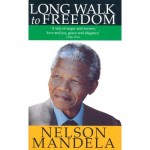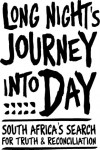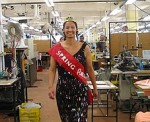I’m not shy about how much I love the library. And it just so happens that our local branch is pretty amazing. In addition to a great selection of books, I can get my hands on pretty much any movie whether it’s a new release, an 80s blockbuster, a foreign film, or an obscure film festival nominee. I assure you that I take advantage of where my tax dollars are spent and check out an array of books and movies. I’m hoping that my excitement spills over, even just a bit, and you might be interested in some of the things that keep me so highly entertained when I’m not traveling.
Recently, I’ve been reading and watching all things Africa. While I wish I had been more knowledgeable on historical events before I went to Rwanda and South Africa, I think I can definitely appreciate and recall the information better now that I have seen and experienced things firsthand. Since there are so many great books and films out there, I thought I would break them down by country. First up? South Africa!
BOOKS:
 Long Walk to Freedom:
Long Walk to Freedom:
The first book I’d like to touch on is Nelson Mandela’s autobiography. While I found it difficult to get into at first, after 200 pages, I didn’t want to put it down. Even after visiting Robben Island, Mandela’s detailed account of ending apartheid goes much more in depth on the events leading up to his imprisonment, his childhood, and the growth of his political party the ANC. Not only did I learn a great deal about his life, I now have a better understanding of how so many people could have the mindset that apartheid is acceptable. This was one book that I really wish I had read before going to South Africa. However, with that said, it was also interesting to be able to identify with certain points in the book. For example, he discusses a particular protest in Langa township that essentially kicked off the police violence. My friend that I met in Langa was at this event as a child, and her cousin and future husband were arrested at it. Having been to Langa means that events that may feel abstract and detached from what I know as everyday life suddenly become very real.
I wrote down a few of my favorite parts as I read through the book, but two stood out to me very clearly. The first is when Mandela took a plane from Khartoum to Addis Ababa. He stepped on board the airplane, saw a black pilot, and initially panicked, Why? Because he had never seen a black pilot before and wondered how a black man could fly an airplane. Even though he was in the midst of fighting one of the greatest injustices in the world, it was still difficult not to be influenced by the apartheid mindset.
There is a quote at the very end of the book that really struck me. I was exhausted just from reading about Nelson Mandela’s hardships. Living in hiding for several years, spending 27 years in prison, going days without food sometimes, never having a normal family life- I can’t imagine. And I’m not sure how he had the energy to lead the country at the end of apartheid. You would think after being released from prison in your 70s and realizing you have assisted in forming a free South Africa, you’d want to kick up your feet for a while. But Mandela is a leader at his core.
“I have walked the long road to freedom. I have tried not to falter; I have made missteps along the way. But I have discovered the secret that after climbing a great hill, one only finds that there are many more hills to climb. I have taken a moment here to rest, to steal a view of the glorious vista that surrounds me, to look back on the distance I have come. But I can rest only for a moment, for with freedom comes responsibilities, and I dare not linger, for my long walk is not yet ended.”
FILM:
 Long Night’s Journey Into Day:
Long Night’s Journey Into Day:
The Truth & Reconciliation Commission was established by President Nelson Mandela and Archbishop Desmond Tutu as a court-like system for perpetrators of violence to apply for amnesty in exchange for publicly testifying about their crimes. People came forward on both sides of the argument, from police who had slain ANC party members to Africans who killed an innocent white female who was studying abroad from the U.S. This film ranks high on my list. However, I must warn you that you may want to have a box of tissues in hand. Not only are the crimes horrendous at times, but I think I was almost more struck by the power of forgiveness displayed in the film. In an attempt to heal many of the open wounds and unsolved cases, the Commission created dialogue among plaintiffs and those who thought they were unable to forgive. This exchange of words played a major role in people moving forward with their lives and forging partnerships in unexpected places. If your library has it, check it out. If not, you definitely need to hunt this one down.
This short documentary follows a beauty pageant with a twist in Cape Town. Here is a synopsis from the California Newsreel website:
Everyday the working class Coloured women in the garment industry of the windswept flats around Cape Town toil anonymously to make clothes so that other women will look beautiful. Invariably they cannot afford these garments themselves. But for one day a year they come out in all their glory at the Annual Spring Queen pageant. The pageant is created by the workers and their trade union to bring their families together for an evening of solidarity and fun. After working for weeks on glamorous costumes, which one will be queen for a day? Set against the preparation for the 2003 pageant, this film explores the lives of working women and celebrates them as creators of beauty. Although the end of apartheid has not taken away the drudgery of repetitive factory labor, this pageant shows working class women inventing their own lively folk culture.
The factory followed in the film cites a decrease in absenteeism and an increase in camaraderie during the time of year when employees are training for the pageant. The film has tender moments and sends a message about a sense of community. However, it still reminds us of the effects of apartheid that still ripple through society today.
To keep this from getting too lengthy, I’ll briefly mention a few others I have read or seen that I also recommend:
 a of the Cape Flats:
a of the Cape Flats:
I have always wanted to see that movie, reminds me I should “borrow” from the Internet today.
Oh yes, I also “borrow” from the internet when on the road. I get spoiled with having a library around :) Let me know what you think of the movie if you get to watch it!
Totally agree with you on A Long Walk to Freedom. It’s easily the best biography I have ever read, and I’ve read quite a few. There is no one man in the world I have more admiration for than Mandela after reading this book. I’ve read it three times fully through now. This book got me going out and buying a few other books on South Africa.
Another one I’d recommend is the Bang-Bang Club. It’s the story of four photographers who cover some of the biggest and bloodiest events in South African history. It also gives you a good grounding of SA in the early 90’s and the tough times the country faced on a variety of topics.
I can’t recommend it highly enough but it can be a tough read, definitely not for fainted hearted.
But the real question is will you get it from the library or wait until you can potentially read it from your future kindle? haha
Are you telling me that you’re buying me a kindle?! ;) J/k. I can’t believe you’ve read it 3 times. Impressive! I think I could benefit from reading it again, as it’s packed with so much detail (though I’m not good at rereading things so it probably won’t happen). Thanks SO much for the recommendation. I’m always looking for new things to read/watch. I will definitely put it on my list!!!
I heard the book was a great read but have made the time to read it yet though. I should though take your approach to spending more time where may tax dollars are already being spent such as in the library.
Kirk,
If I bought every book I read, my travel funds would be nonexistent ;) Ours makes it really easy where you can go online, reserve your books, and they’ll be ready at the counter. You don’t even have to go search for them!
I grew up obsessively going to the library. They actually made a special rule for me that I could take more than 20 books home at a time (which was the limit) so that I didn’t have to go back to get new books so often!
The Nelson Mandela biography sounds absolutely fascinating. I’ll be the first to admit that I know shamefully little about him, but the whole story really interests me so I’ll have to check it out soon!
Kyle,
No shame in that. I really knew nothing about Mandela before I started reading it except about his imprisonment and that he was the President. There is so much more to the story that and I think it’s interesting to see what leads one to go down a particular path in life. It also gives a really good overview of apartheid (though it doesn’t go into the history of it as much).
I’ve always wanted to read Long Walk. I think I will get it next on my Kindle. Oh, and I loved Invictus.
You definitely should. Just be patient through his childhood years. You’ll get hooked at some point I’m sure ;)
A good book on Africa: The Wretched of the Earth by Frantz Fanon.
http://en.wikipedia.org/wiki/The_Wretched_of_the_Earth
Thanks for the book recommendation. I’ll definitely check it out :)
I hate to say it, but I haven’t read the book. Actually, I had the book at my old house in Japan, but I never got around to reading it. It’s another book I have to read. But my dad did buy me the book that the movie Invictus was based on, and I’ll get to that soon. Have you watched that movie?
nelson mandela is sure one of the graet leaders of this century
Laura, are you familiar with the Sharpeville Massacre? A new book was just published about it. I haven’t read it yet, but I saw it at my local library. It’s titled “Sharpeville: A Massacre and Its Consequences.”
Laura, I’m not sure if you know this, but an interesting documentary recently aired on PBS. It’s called “Have You Heard From Johannesburg?” Click here for info: http://www.pbs.org/independentlens/have-you-heard-from-johannesburg/
I watched the first two parts, and they’re amazing. You should check it out.
Here’s a link to the first part: http://video.pbs.org/video/2186320824